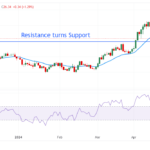
Lending by German banks to weaker parts of the eurozone has dropped to nearly 20 percent since the beginning of the year and is currently at its lowest level since 2005, according to central bank data.
A total of €55bn less in net loans were granted to Greece, Ireland, Italy, Portugal and Spain by German banks between January and late May this year, according to Morgan Stanley’s analysis of Bundesbank figures. Only €241bn of loans were granted.
There has been a trend for German and French banks to retrench their cross-border exposure since mid-2010, but the new figures suggest that the process of domestic market bias has sped up.
The drop in lending might reflect growing fears of a eurozone break up, which would trigger capital controls in exiting countries and increased regulatory pressure on all banks to minimise their wholesale lending activities and boost their local lending to catch up with local deposits.
The new figures underline what ECB President Mario Draghi last week described as “financial fragmentation”. Both the ECB and the European Commission have warned in separate papers published recently that the years since the 2007 crash have caused a “clear setback” to European financial integration.
The ECB is scheduled to meet on August 2 when Draghi has promised he is “ready to do whatever it takes” to ensure the future of the euro.










